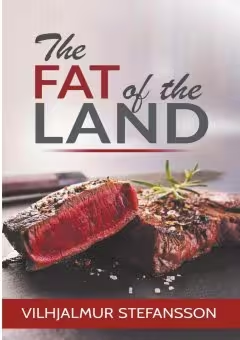What if I told you… we burn better than we think?
If you think long and hard enough, for most of human history?
We burnt fat.
I don’t mean that metaphorically or philosophically. This is before food rituals even existed. Our ancestors built empires with it. They lit temples and survived sieges & famines by taping into a secret stash that every one of them carried:
Animal fat
It came with labels a many. Tallow, lard, suet, even whale oil. Fat was a currency for survival. When a Roman army marched, their grease trail marked their route. When a Viking set out, his fat-packed stores1 wrapped in cloth & legend marked his fury.
In the frigid lairs, Inuit tribes powered their bodies2 on a diet that modern dieticians would label as madness! But they weren’t concerned, they were warm; they were alive!
And thus, the story of fat unfolds, not the one of decadence (which is really all too familiar), but rather, the one by design.
Sugar is but a finicky flicker; fat a fiery forge.
The Science
You’ve likely read it all. You probably know by now. Still, if only to measure the steaks stakes, one must understand the alchemy.
A molecule of triglyceride slips into the bloodstream, escorted with the ceremony of a royal guest. The liver, ever the master chemist, performs it’s incantations. Beta oxidation. Ketogenesis. A slight tingle behind the eyes. And then it happens.
Fire in a new form.
Ketone bodies emerge. Acetoacetate. Beta-hydroxybutyrate. But perhaps the most poetic of all? Acetone.
Yes. Nail polish remover.
You smell it, faintly, on your breath in the morning. That sharpness. That chemical ghost of your body burning its reserves, sending signals from the inside.
A whisper of fire on your tongue, and no, it’s not the curry.
Nor is it dysfunction. ‘Tis elegance. Evolution’s quiet contingency. When sugar is scarce. Burn slow. Burn clean. Don’t panic.
Somewhere along the way, we forgot. From the tender age’s introduction to sweets, to the Gluco-rush, to the Crash. It’s the Cycle of life as we knew it.
We invented breakfast cereals and energy bars, forgetting that our species once traversed deserts on camel milk and clumps of butter wrapped in leaves. Sugar became king.
But fat was always sovereign.
And then Hollywood came along and tried to plug us in.
The ScienceFiction
Let’s talk about The Matrix. That 1999 blend of leather & latex and characters who wore shades like it was battle armor.
It asked all the big questions. What is real? What is freedom? And, bafflingly, what if machines harvested humans to generate… electricity?
Electricity.
From our bodies.
Sure.
Now, let’s be kind and assume the machines had it rough. The average human brain outputs less electrical power than an LED bulb. (Not the fancy ones, the cheap ones at the back of the shelf)
Meanwhile, the same human body contains around 100,000 kilocalories of stored fat, a biochemical goldmine, if you’re even halfway serious about harvesting energy.
And if that energy did in fact come from humans, you wouldn’t bother with the cerebral cortex, you’d go straight for the subcutaneous treasure chest.
They plugged into the wrong end.
The brain emits thought. And thought demands the most complex of systems to sustain.
The gut is where the real power plants were.

Had the machines understood metabolism, they’d have redesigned the pods. No cranial jacks. Just long tubes that siphoned short-chain fatty acids, fermented butyric acid, maybe even the odd ketone pulse.
They’d have skipped the whole “simulate life” nonsense and gone full bioreactor. Keep the host in fasting, in a peaceful coma. Maintain low insulin.
Humanity would’ve just sat there, blissfully ketotic, dreamlessly sipping away in sleep while our livers kept the world running.
And it would’ve worked. We aren’t made to be plugged in but we’re sure as hell made to burn.
Slowly.
Elegantly.
Like an oil lamp in a howling Nordic storm.
The machines got it wrong.
The Matrix didn’t fail because humans are rebellious.
It failed because no one taught the machines to count calories.
Book References on Amazon

1 An Early Meal – a Viking Age Cookbook & Culinary Odyssey
2 The Fat of the Land
*these are affiliate links
Related Posts.

Grospel of Croffee: The Parable of the Maiden’s Plea
Oat milk? In keto?! A poetic tale of forbidden flavour, almond betrayal,… Read More

Croffee anyone? Or Kroffee if you’re so inclined.
Ditch almond milk! Discover Croffee, the ultimate keto hack. A hilarious take… Read More
